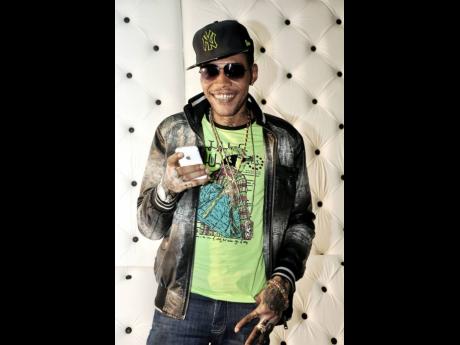The Music Diaries | Banned on the airwaves
Jamaica has a long tradition of songs that have been banned from the airwaves or have created a societal furore because of their sexually suggestive lyrics, promotion of violence and murder, or criticism of the status quo. The promotion of hostility towards homosexuals in recordings has also led to the cancellation of a number of stage shows where homophobic performers are billed to perform.
The earliest set of recordings that came under this banner were mento songs. For the most part, many contained highly sexually suggestive lyrics, many of which were highly ambiguous. And so when we compared them to current songs, they, perhaps, would, be miles apart in terms of what Jamaicans call ‘slack songs’.
Written by some skillful songwriters, Everard Williams being the most prominent, one had to look carefully ‘between the lines’ to know exactly what was being referred to in some mento recordings.Night Food, for example, written by Williams about 1952, would easily be looked at by a child or some undiscerning adult as a story about overnight food or food eaten at night. But it could also be easily construed as having sexual connotations bordering on oral sex as a woman enticed a young boy with:
“Why you stay outside, when there is warmth and food inside?
Inside I have some nice night food,
I hope you are in the eating mood.”
To which the boy responded:
‘That sounded to me now very strange,
as she didn’t visit the kitchen range.”
There were several others. As it turned out, the recording created quite a stir and caused some pandemonium in parliament, when the then minister of trade and industry in the ruling PNP government held aloft a copy ofThe STAR newspaper of April 2, 1956, and declared: “Imagine things like these being played to our children.” According to the vocalist Alerth Bedasse,Night Food was never heard on the airwaves for some 50 years.
During the ska era,Carry Go Bring Come by Justin Hines and The Dominos was an instant No.1 hit in Jamaica for over a month in 1964 before the powers that be temporarily removed it from the airwaves, citing its contents as an attack on the establishment.
A decade later, three songs suffered the banning fate: We The People/The Power and The Glory by Ernie Smith, Fire Burning by Bob Andy, and No Joshua No by Max Romeo. In an interview with Smith, he told me, “I left Jamaica in ’76 because people were telling me that I was not safe here because I wrote the song‘As we fight one another for the power and the glory, Jah Kingdom gone to waste’. It was banned during a state of emergency. It wasn’t pro anybody. Mi no care who a do it. God say dat no right. It was just lamenting the condition at the time as far as violence was concerned,” Smith asserted.
Fire Burning took direct aim at the government of the day as Andy sang:
“From every angle I can see, my people you’re meeting hell
Brothers have turned to crime
So they die from time to time
I’d like to ask you leaders,
What have you got in mind?
I can see the fire burning.”
His outbursts earned him a call to Jamaica House to offer an explanation. Although being banned for a while, the recording still managed to top the charts in ’74.
Max Romeo, who recorded several pro-PNP songs in the early ’70s, including the very popular Let The Power Fall On I, in ’72, which helped the party to gain power that year, returned in ’74, with a somewhat different note on No Joshua No. It sparked some amount of controversy, and according to Smith, was banned along with Fire Burning and We The People/The Power and The Glory.
In 2009, radi o listeners were deprived of hearing some of their favourite songs, owing to a ban on tunes that promoted sex or glorified violence, murder, and arson. According to the authorities, they were trying to put an end to what they described as “daggering”.
In 2011, the state-owned radio network in Guyana banned Vybz Kartel’s music from the airwaves because of obscene lyrics. His music was also banned in certain parts of the United Kingdom and New York.
The gospel genre found itself among banned songs recently when the controversial song Bawl Out by Chozenn on a dancehall rhythm was banned by the board of Love FM after being played on the station for some time.


